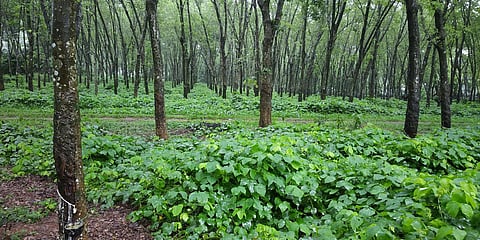

KOCHI: Georgekutty P, who emigrated to the United States with his family in the early 2000s, is confronted with a problem that many Keralites settled in the West now face: selling property in Kerala that they hold or was passed on as a share of ancestral holding.
“I have about half an acre of land in Ponkunnam, Kanjirappally. My children have good jobs in the US and they are least interested in my small landholding in Kerala. I have leased out the plot for farming, and hope to formalise the agreement during my visit next year,” he said, by phone from Phoenix, Arizona, where he resides.
“I don’t think I will be able to sell the property as there are no buyers even at the prevailing depressed prices.”
Hundreds of Malayalis who moved to the US, Canada, the United Kingdom and other European countries in the early noughties are looking to dispose of their holdings in Kerala.
However the fall in rubber prices has led to a sharp fall in property prices, forcing emigrant Keralites to lease their land to contract farmers.
This phenomenon is more common in central Kerala, mostly Kottayam, Idukki and Pathanamthitta, and the interior areas of Ernakulam, say experts.
The price of an acre of rubber plantation in a panchayat area with access to a PWD road has fallen from Rs 1 crore, when rubber prices peaked, in 2010-11 to Rs 40-45 lakh.
For land with only village road access, prices have dipped to Rs 25-30 lakh from Rs 50-60 lakh, say officials in the sector.
“And even at this price there are no takers,” says M C Saju, a farmer in Ernakulam’s Koothattukulam, who foresees large tracts of land in the state being leased out for contract farming in the coming years as they remain unsold.
“This is already happening,” he adds.
Sony T K, from Kothamangalam, is one such enterprising farmer who grows pineapple on 500 acres.
“A problem with farming is the disinclination to invest hard cash to buy the land and start cultivation. This is because of the promise of better returns elsewhere,” he says.
Besides farming pineapple on properties contracted from big estates such as Harrisons Malayalam, he has leased a 15-acre rubber plantation owned by a UK-settled Malayali in Kanjirappally.
K V Joseph, director of the Thiruvananthapuram-based International Institute of Migration and Development, foresees the distress sale of properties of Keralites settled in Western countries.
“I see a major change in Kerala’s socio-economic scenario in the coming years. For one, there are a large number of ghost houses already in many parts of central Kerala, which will come up for panic selling. Similarly, there will also be a fire sale of rubber plantations and other properties,” he says, adding that the trend will be largely visible in central Kerala, from where a large number of Malayalis, mostly Christians, emigrated.